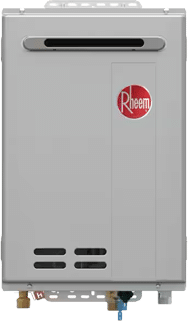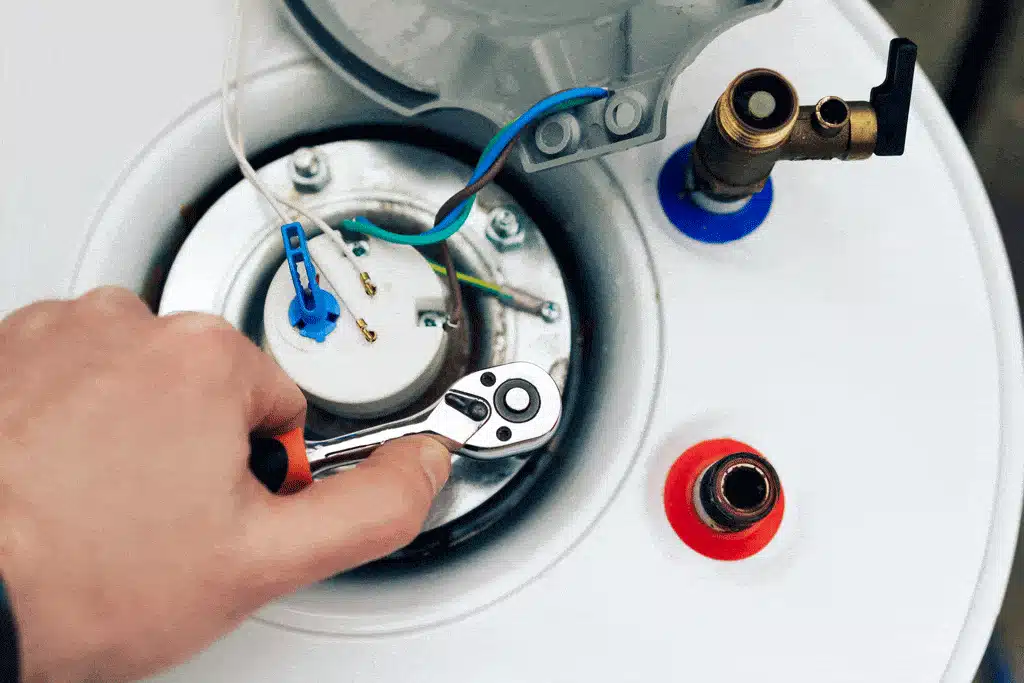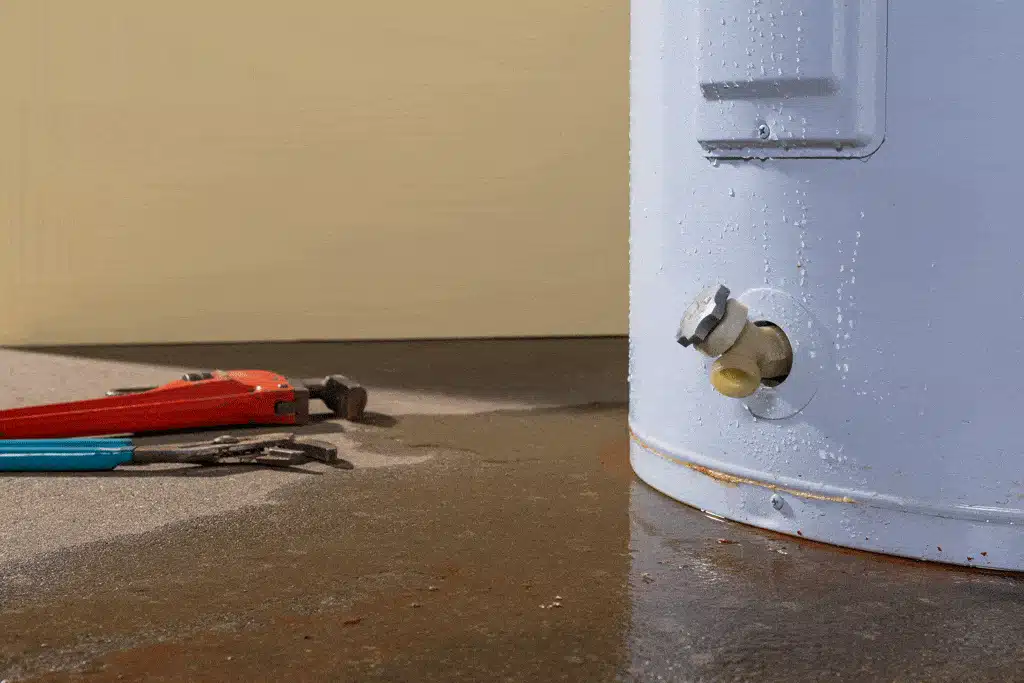Hot water is essential for daily comfort, from showering to washing dishes. When your system fails, it can disrupt your routine unexpectedly. In Dallas, TX, fluctuating temperatures make a reliable water heater even more important. Understanding your options ensures you always have hot water when you need it.
Why Reliable Hot Water Matters in Dallas Homes
Dallas homeowners rely on consistent hot water for comfort and hygiene year-round. Sudden temperature drops in winter can make a cold shower unbearable. Even in summer, hot water is necessary for household chores and sanitation. A well-maintained system ensures efficiency, prevents breakdowns, and saves on energy costs.
Hard water is common in North Texas, which can cause buildup in water heaters. This mineral accumulation reduces efficiency and shortens the system’s lifespan. Regular maintenance helps prevent these issues and keeps your water heater running smoothly. Investing in a reliable unit ensures comfort and peace of mind for years.
Common Causes of Hot Water Shortages
Running out of hot water can be frustrating, especially during busy mornings. One common cause is sediment buildup in the tank. Over time, minerals from Dallas’ hard water settle, reducing efficiency and capacity. Regular flushing helps prevent this issue and extends your heater’s lifespan.
Another issue is an undersized water heater that can’t keep up with demand. Larger families or homes with multiple bathrooms may need a higher-capacity unit. If your water runs cold too quickly, upgrading might be the best solution. A professional assessment can determine the right size for your needs.
Faulty heating elements or a broken thermostat can also lead to water temperature issues. Electric water heaters rely on functioning elements to heat water efficiently. Gas heaters depend on working burners and pilot lights for consistent warmth. If you notice fluctuating temperatures, it’s time for a professional inspection.
Signs Your Water Heater Needs Attention
Recognizing early warning signs can prevent sudden breakdowns and costly repairs. One clear sign is inconsistent water temperature. If your water fluctuates between hot and cold, your system may be struggling. This issue often points to failing components or sediment buildup.
Unusual noises, such as popping or rumbling, indicate trapped sediment in the tank. As minerals settle, they harden and cause overheating, reducing efficiency. Regular flushing helps maintain performance and prevents unnecessary strain on the unit. Ignoring these sounds could lead to premature failure.
Leaks around the base of your water heater signal a serious problem. Small drips can quickly turn into major water damage if left unchecked. Corrosion, loose connections, or pressure buildup may be to blame. A professional plumber can diagnose and fix the issue before it worsens.
The Benefits of Upgrading to a Modern Water Heater
Upgrading your water heater can improve efficiency, reliability, and energy savings. Modern units heat water faster while using less energy, lowering utility bills. Many newer models also have advanced safety features to prevent overheating and leaks. Investing in an upgrade ensures you always have hot water when you need it.
Tankless water heaters provide an endless supply of hot water, making them popular in Dallas homes. Unlike traditional tanks, they heat water on demand, reducing energy waste. This means no waiting for a tank to refill, even during peak usage times. Homeowners enjoy consistent comfort while saving space and money.
Newer water heaters are designed to handle Dallas’ hard water conditions more effectively. Advanced models include self-cleaning features that reduce mineral buildup and extend lifespan. With proper maintenance, a high-efficiency system can last much longer than older models. Choosing the right unit ensures long-term performance and reliability.
How Regular Maintenance Extends Your Water Heater’s Life
Routine maintenance keeps your water heater running efficiently and prevents unexpected failures. Sediment buildup is a common issue in Dallas, causing overheating and damage over time. Flushing your tank yearly removes minerals and improves performance. This simple step helps extend your system’s lifespan.
Checking the anode rod is another crucial maintenance task. This component prevents corrosion inside the tank, protecting against leaks and rust. Replacing a worn-out anode rod can add years to your heater’s life. A professional plumber can inspect and replace it when necessary.
Water pressure issues can also impact your system’s efficiency. High pressure strains pipes and heating elements, leading to potential leaks or damage. Installing a pressure regulator helps protect your heater and plumbing system. Regular inspections ensure everything functions correctly, reducing repair costs.
Choosing the Right Water Heater for Your Home
Selecting the best water heater depends on household size, usage, and energy efficiency goals. Traditional tank models store hot water, making them ideal for steady use. However, they take up space and have limited capacity. If you frequently run out of hot water, a larger tank may be necessary.
Tankless water heaters provide a continuous supply without needing storage. They heat water only when needed, improving efficiency and reducing standby energy loss. These systems are compact, making them great for homes with limited space. While they have a higher upfront cost, long-term savings make them a smart investment.
Energy efficiency ratings are another important factor when choosing a unit. High-efficiency models use less energy, reducing monthly bills and environmental impact. Look for ENERGY STAR®-rated water heaters to maximize savings. Consulting a professional plumber ensures you select the best system for your needs.
Trust the Experts for Reliable Hot Water Solutions
When your water heater needs attention, professional service ensures lasting results. Licensed plumbers diagnose issues quickly and provide expert repairs or replacements. They also offer maintenance plans to keep your system running efficiently year-round. With reliable service, you can always have hot water when you need it.
Dallas homeowners face unique challenges like hard water and high demand. Local plumbing professionals understand these issues and recommend the best solutions. Whether upgrading to a tankless unit or maintaining your current system, expert help makes a difference. Quality service ensures comfort, efficiency, and peace of mind.
Delaying repairs can lead to costly damage or unexpected cold showers. Addressing minor issues early prevents major breakdowns and extends your system’s lifespan. A trusted plumber can assess your needs and provide customized solutions. Investing in professional care guarantees a steady supply of hot water.






















